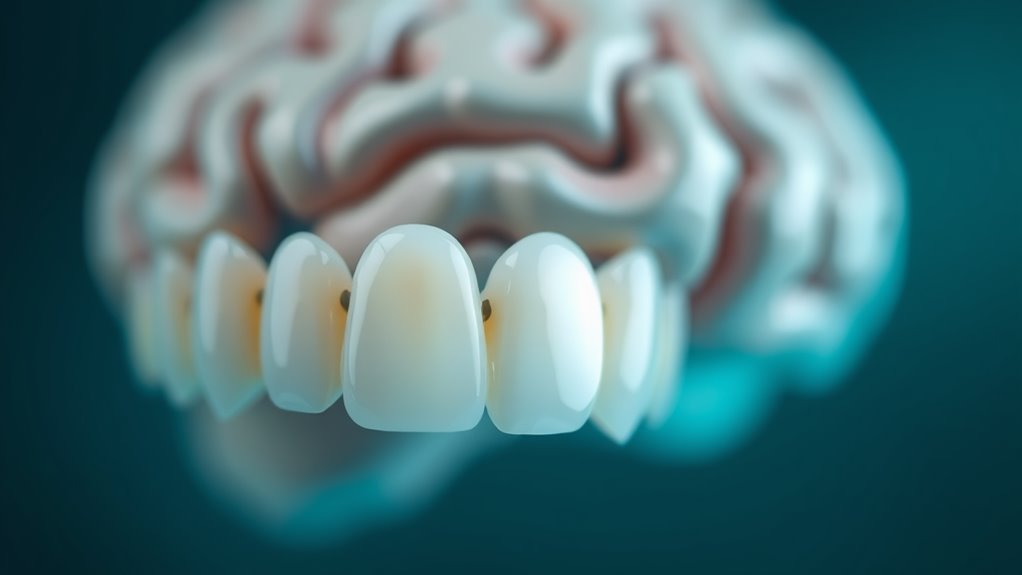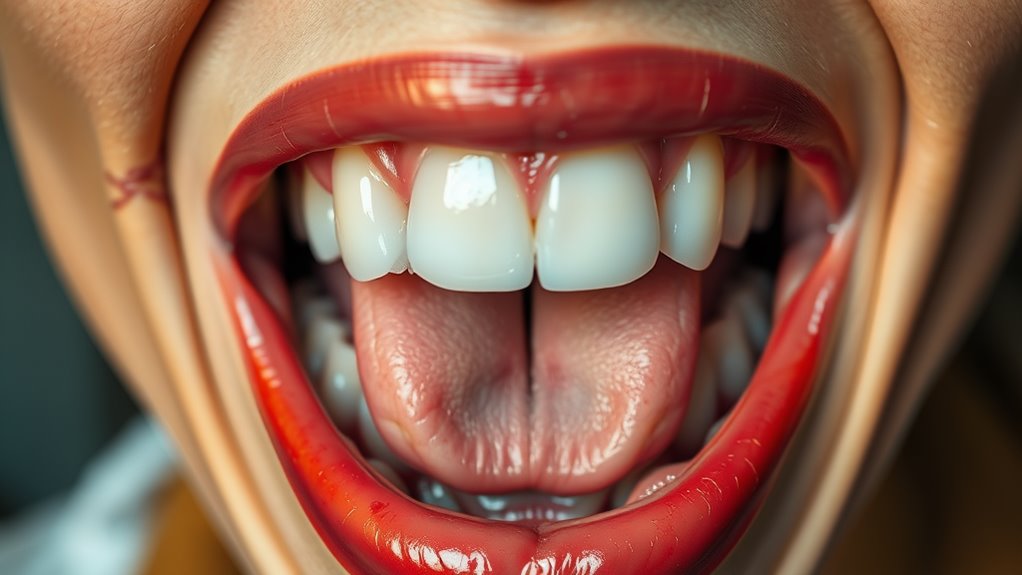The Weird Connection Between Gum Disease and Heart Health
Key Takeaways
- Gum disease inflammation can lead to increased risks of heart problems by affecting blood vessels and overall cardiovascular health.
- Oral bacteria entering the bloodstream trigger inflammation that is linked to heart disease and other chronic conditions.
- Poor oral hygiene promotes harmful bacteria growth, which can lead to plaque buildup in arteries and heart complications.
- Risk factors like poor diet, tobacco use, and lack of exercise contribute to both gum disease and cardiovascular issues.
- Maintaining good oral hygiene through regular brushing, flossing, and dental check-ups can help protect heart health and prevent disease.
Understanding Gum Disease
Understanding gum disease is essential not just for your oral health but also for your overall well-being.
Poor gum health can lead to infections and inflammation, impacting your body beyond your mouth. Researchers are increasingly exploring the gum heart link, revealing how untreated gum issues may elevate your risk for heart disease. Inflammation from gum issues can damage arteries and contribute to chronic conditions.
Staying informed can help you maintain both healthy gums and a healthy heart.
The Link Between Inflammation and Heart Health
Inflammation plays a vital role in your heart health, affecting everything from your blood vessels to your overall well-being.
If you have gum disease, the inflammation in your mouth can link to increased risks for heart problems.
Understanding this connection highlights the importance of maintaining good oral health for your heart’s sake. Additionally, poor oral hygiene has been linked to serious health issues like heart disease, emphasizing the need for regular dental care.
Inflammation and Blood Vessels
While you may not realize it, the health of your gums can considerably impact your blood vessels and heart. Inflammation from gum disease can lead to increased plaque in your arteries, narrowing blood flow. Understanding this connection is essential.
| Inflammation Source | Effect on Blood Vessels |
|---|---|
| Gum Disease | Increases arterial plaque |
| Chronic Inflammation | Reduces elasticity |
| Bacteria in Gums | Triggers immune response |
| Poor Oral Hygiene | Worsens inflammation |
| Stress | Aggravates plaque buildup |
Oral Health Impact
When you neglect your oral health, you’re not just risking your gums; you’re potentially jeopardizing your heart.
The same bacteria that cause gum disease can trigger inflammation, which harms your blood vessels. This inflammation can lead to plaque buildup in arteries, increasing your risk of heart problems.
Prioritizing good oral hygiene can help protect both your smile and your heart’s health.
How Bacteria From the Mouth Impact the Heart
You might be surprised to learn that the bacteria in your mouth can affect your heart health.
When oral bacteria enter the bloodstream, they can trigger inflammation, which is linked to heart disease.
Understanding these pathways helps highlight the importance of maintaining good oral hygiene for your overall well-being. Additionally, research reveals a significant link between oral health and heart disease, emphasizing the need for proactive dental care.
Oral Bacteria and Inflammation
Oral bacteria, often overlooked in discussions about heart health, play a significant role in the inflammation that can affect your cardiovascular system.
When you neglect your oral hygiene, harmful bacteria thrive, contributing to gum disease. This inflammation can release compounds into your bloodstream, potentially impacting your heart health.
Staying vigilant about dental care not only protects your smile but also your heart.
Bloodstream Pathways Explained
Ignored oral hygiene can lead to harmful bacteria entering the bloodstream, creating pathways that directly affect heart health. Here’s how:
-
Bacterial Invasion: Gum disease allows bacteria to break through the oral lining.
-
Inflammatory Response: Once in the bloodstream, these bacteria trigger inflammation.
-
Cardiovascular Risk: Chronic inflammation can contribute to artery plaque buildup, increasing heart disease risk.
Maintaining good oral hygiene is essential for your heart health!
Risk Factors That Connect Oral and Cardiovascular Health
While many might overlook their oral health, it’s increasingly clear that certain risk factors link gum disease to cardiovascular issues. Poor diet, tobacco use, and lack of exercise can contribute to both conditions. Additionally, high stress and diabetes can elevate your risk. Good oral health emphasizes the importance of addressing both oral hygiene and overall health for a healthier heart and mouth.
The Role of Oral Hygiene in Preventing Heart Disease
Good oral hygiene practices play a key role in maintaining heart health.
You can reduce your risk of heart disease by:
- Brushing twice daily – Removes plaque and prevents gum disease.
- Flossing daily – Cleans between teeth, where brushes can’t reach.
- Regular dental check-ups – Detects issues early and keeps your mouth healthy.
Moreover, maintaining oral health can enhance cognitive abilities, showcasing the interconnectedness of oral hygiene and overall health.
Symptoms of Gum Disease to Watch For
Gum disease can sneak up on you, often with subtle signs that shouldn’t be overlooked. Watch for the following symptoms to catch it early:
| Symptom | Description | Action |
|---|---|---|
| Swollen gums | Gums may appear puffy | Schedule a dental checkup |
| Bleeding when brushing | Gums bleed during oral care | Don’t ignore this signal |
| Persistent bad breath | Foul odor that won’t go away | Consult a dentist |
| Receding gums | Gums pulling away from teeth | Seek professional advice |
Early detection of gum disease is crucial to prevent serious issues like gum recession, which can further harm your oral health.
Tips for Maintaining Healthy Gums and a Healthy Heart
Maintaining healthy gums is essential for your overall well-being, as it directly impacts heart health.
To keep your gums and heart in top shape, follow these tips:
-
Brush twice daily and floss daily to remove plaque.
-
Visit your dentist regularly for check-ups and cleanings.
-
Eat a balanced diet rich in vitamins and minerals to support gum health.




